Vienna sides approach point of agreement, but few important issues still remain: Iran FM
Iranian Foreign Minister Hossein Amir-Abdollahian says a final agreement between Iran and the P4+1 group of countries over the removal of sanctions and a possible revival of the landmark 2015 deal is close but there are "few important" issues that need to be resolved.
Amir-Abdollahian made the remarks in a live televised interview on Saturday a few hours before a planned visit to Tehran by European Union deputy foreign policy chief Enrique Mora, who also acts as the coordinator for the talks between Iran and the five remaining parties to the deal, officially known as the Joint Comprehensive Plan of Action (JCPOA).
He added that any possible agreement "will not go beyond the JCPOA" framework, emphasizing, "We have managed to make major progress in the area of sanctions removal."
The top Iranian diplomat noted that Mora is due in Tehran in a few hours to discuss the latest developments on the Vienna talks.
He dismissed certain Western media reports claiming that Russia has taken the final agreement in Vienna hostage following the ongoing conflict in Ukraine, saying he held a phone call with his Russian counterpart Sergei Lavrov and then traveled to Moscow to shed light on the issue.
Amir-Abdollahian said the Americans have sought to hold "direct" talks with Iran to prove what they called good faith of President Joe Biden's administration, adding, "We … declared that if the US has goodwill, it should remove sanctions against Iran … We want practical measures."
He emphasized that "excessive demands" of the US are the main obstacle that prevent the sides from reaching an agreement in the Vienna talks.
"What has been preventing the [Vienna] talks now from [culminating in] an agreement are few issues on the part of the Americans. There are challenges and differences of opinion on some issues," the Iranian foreign minister said, noting that Washington has accepted that it should take steps in the action phase.
Elsewhere in the interview, Amir-Abdollahian said the removal of unilateral US sanctions on real and legal entities in Iran and some state institutions, particularly the Islamic Revolution Guards Corps (IRGC), was among the Islamic Republic's top demands in the Vienna talks.
He stressed the importance of taking into consideration the IRGC's status and role as a security and defense Iranian force.
"If the Americans take a realistic approach, a [final] agreement can be reached. Iran and the three European countries (Britain, France and Germany) have agreed a text and this text needs final editing," the top Iranian diplomat pointed out.
He said Iran will not back down on its nuclear achievements. "If you want to allay your concerns about nuclear issues, you must remove the oppressive sanctions."
Earlier this month, the Vienna talks were paused for an undetermined period of time despite reports suggesting that they were in the “final stages.”
The United States, which is blamed for the current stalemate, is reluctant to take confidence-building measures due to its erroneous bias, procrastination in decision-making and excessive demands.
Iranian officials have repeatedly said the US needs to remove all illegal sanctions against the Islamic Republic in a verifiable manner and offer guarantees that a new US administration will not breach the JCPOA again before it can rejoin the deal.
Former US president Donald Trump unilaterally left the JCPOA in May 2018 and re-imposed the anti-Iran sanctions that the deal had lifted. He also placed additional sanctions on Iran under other pretexts not related to the nuclear case as part of his “maximum pressure” campaign.
In May 2019, following a year of strategic patience, Iran decided to let go of some of the restrictions on its nuclear energy program, resorting to its legal rights under the JCPOA, which grants a party the right to suspend its contractual commitments in case of non-compliance by the other side.
The Biden administration says it is willing to compensate for Trump’s mistake and rejoin the deal, but it has retained the sanctions as leverage.
The Iranian foreign minister said on Wednesday that it is up to the Americans to decide whether they want to act realistically so as to help finalize an agreement on the restoration of the JCPOA.
“If the American side acts realistically, we are ready to finalize an agreement in the near future in the presence of the foreign ministers of the member states of the Joint Commission of the Joint Comprehensive Plan of Action,” Amir-Abdollahian said.
VIDEO | Iran, Pakistan target $10 billion in bilateral trade by 2028
Tehran summons German envoy over Berlin’s anti-Iranian stances, measures
Iran warns about consequences of normalizing violations of intl. rules
VIDEO | Gaza’s Ramadan: 1.7mn displaced struggle between hope and pain of war
Israel’s West Bank land seizures signal 'alternative homeland' threat: Ex Jordanian official
Tarique Rahman sworn in as Bangladesh’s new prime minister
UAE removes online references to Hind al-Owais after Epstein email revelations
Iran in no way seeking nuclear weapons: Pezeshkian


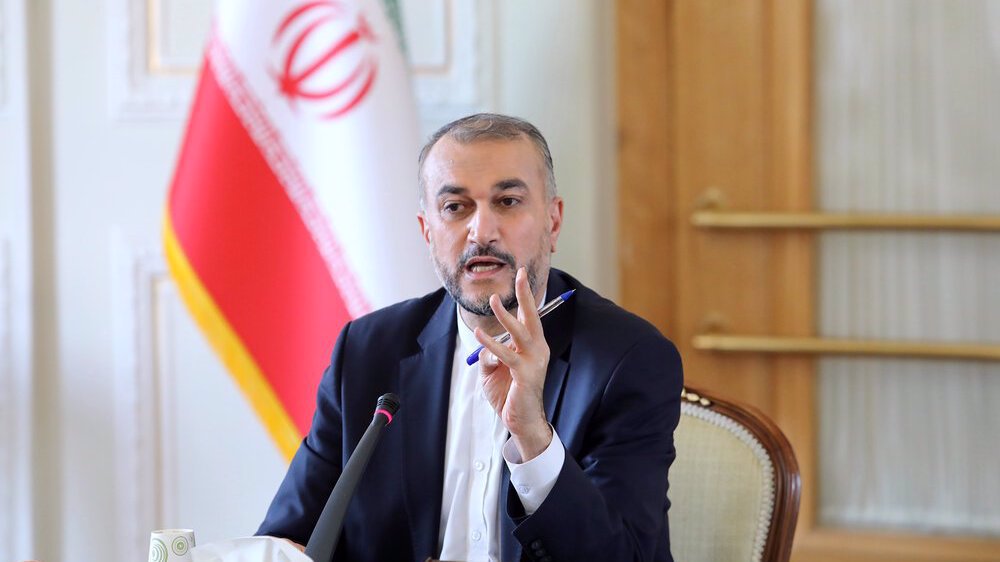
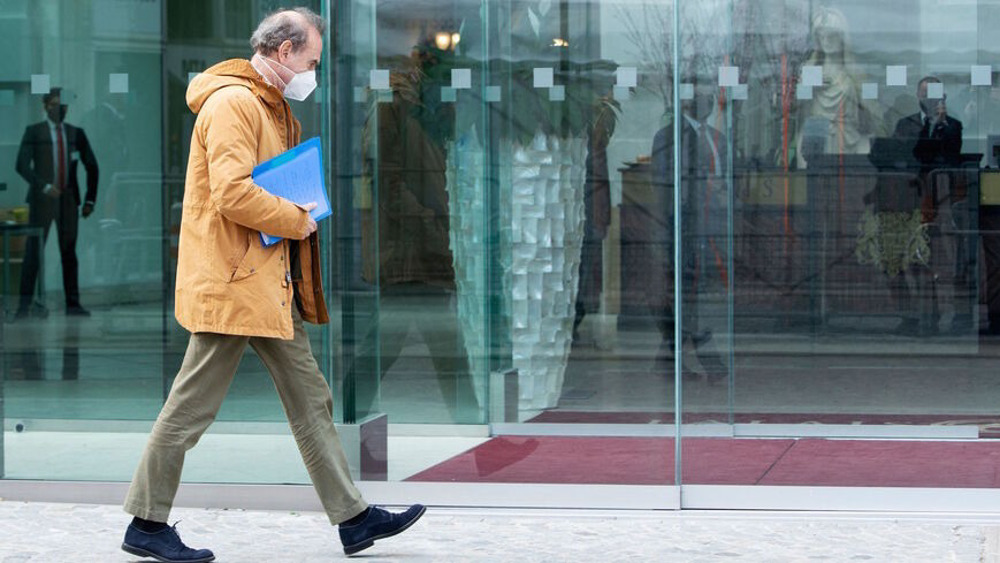
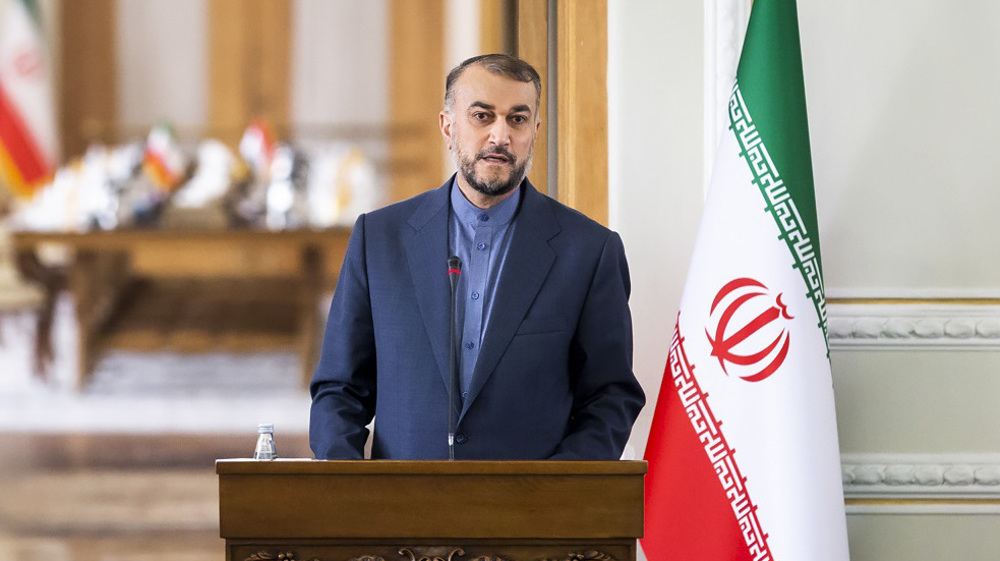
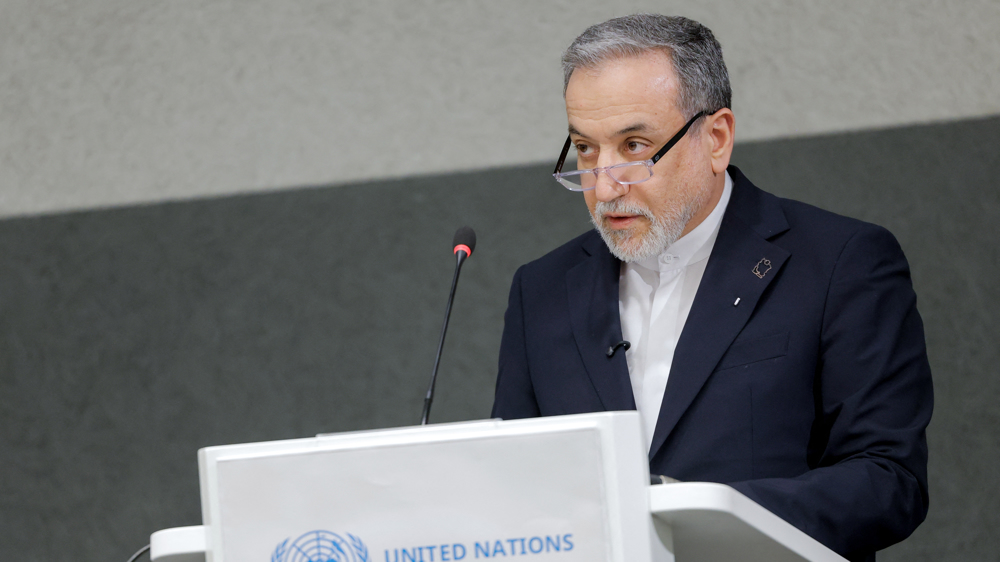
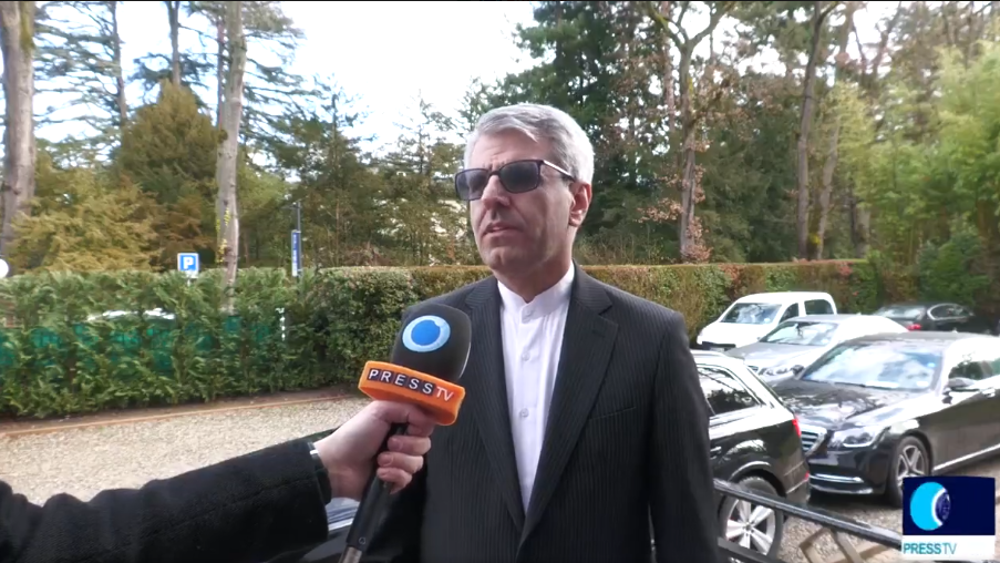
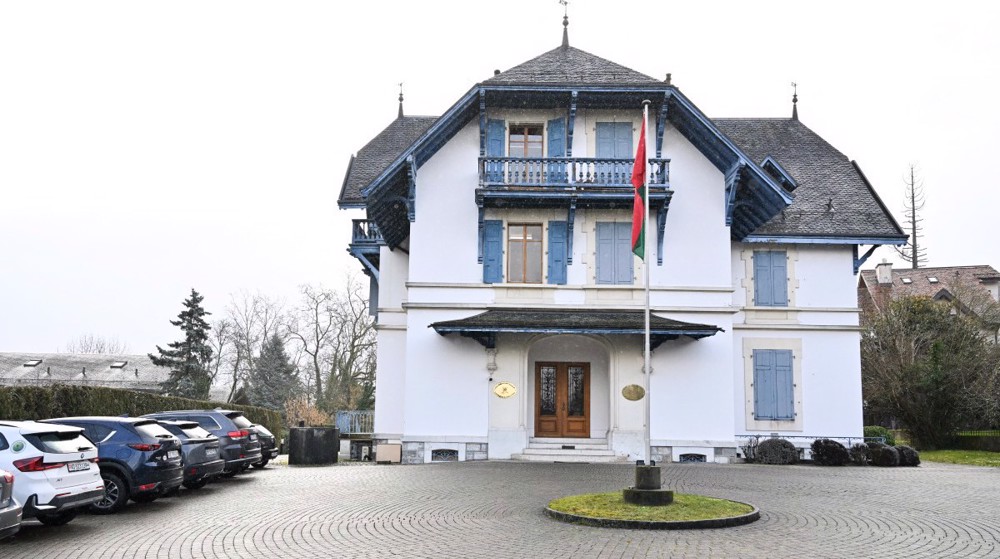




 This makes it easy to access the Press TV website
This makes it easy to access the Press TV website